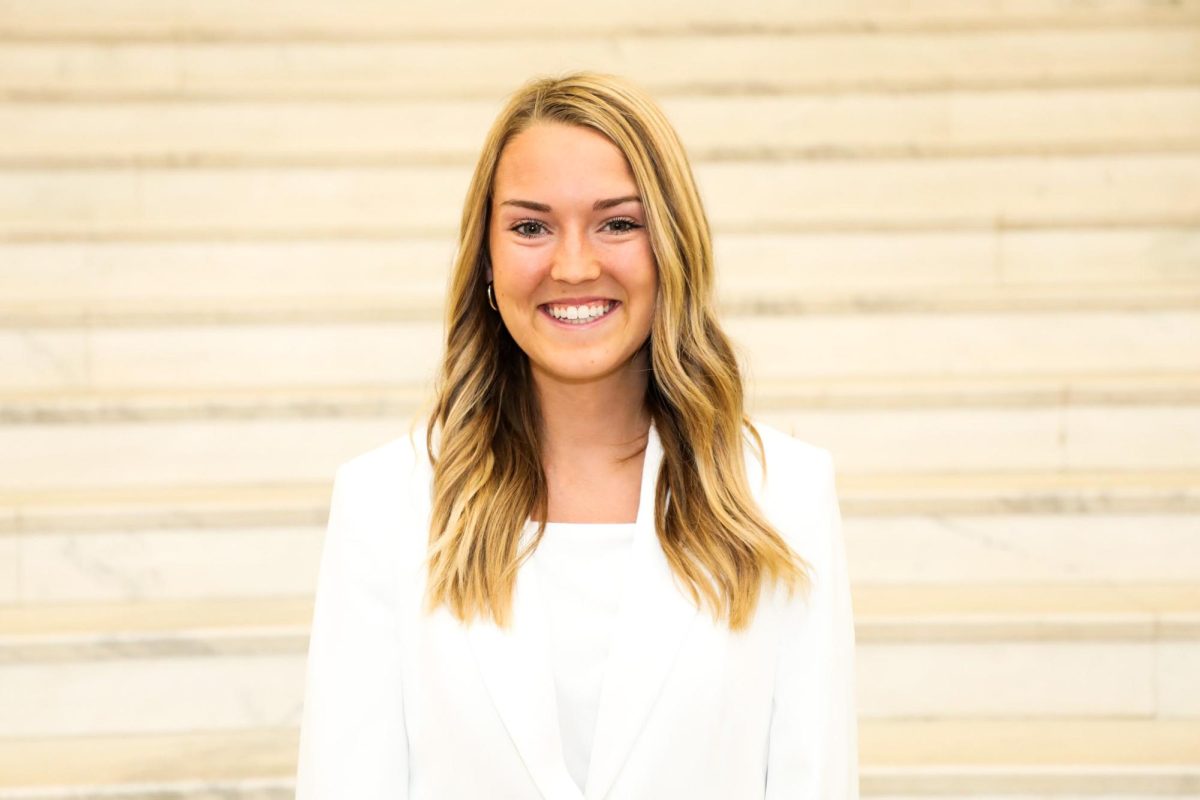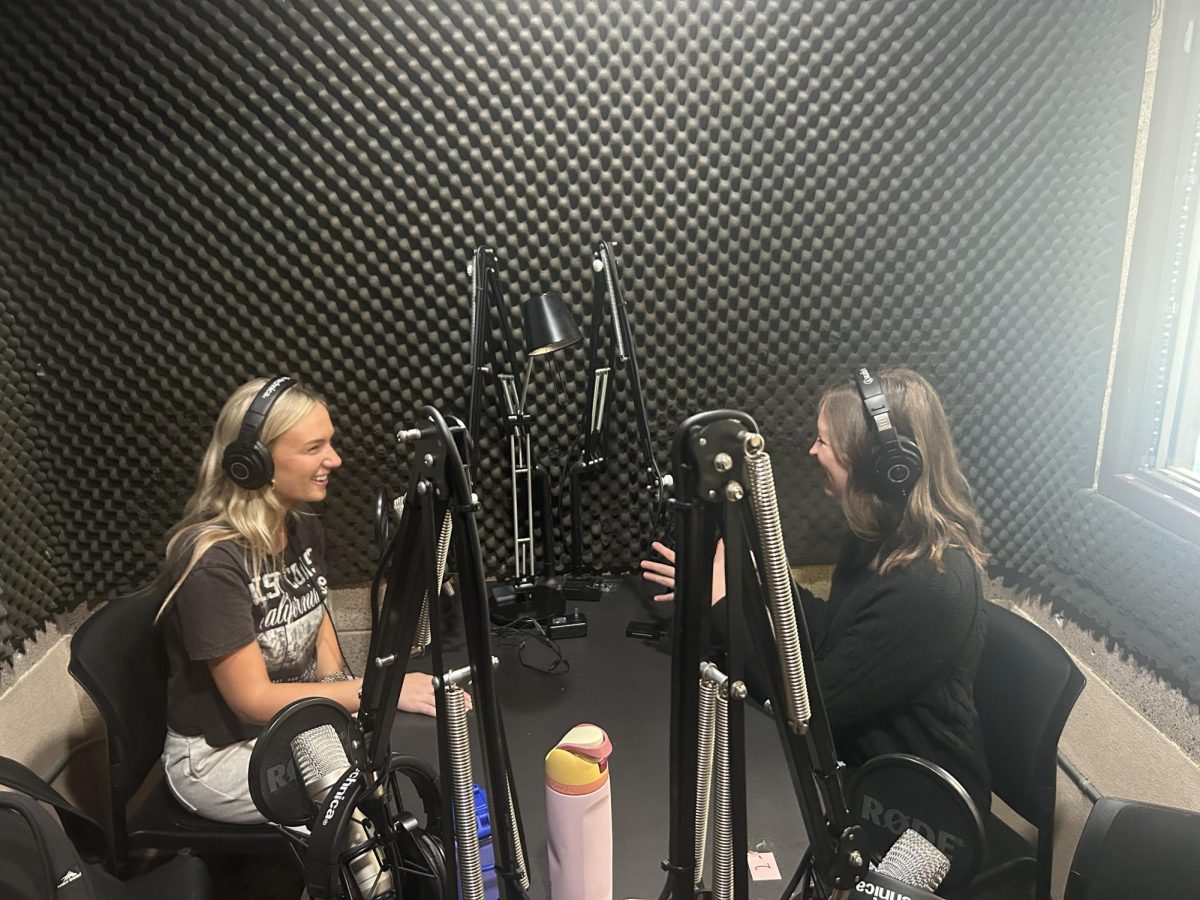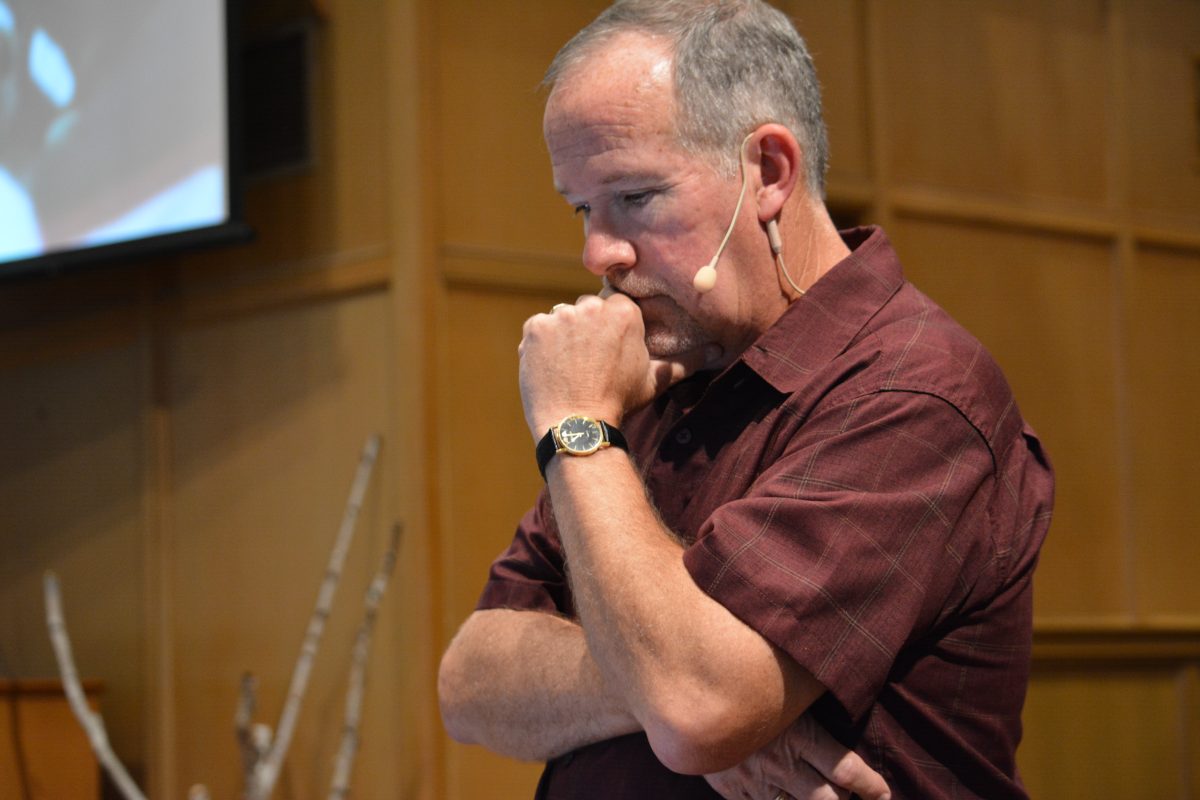Bethel University creates an atmosphere to profess the Christian faith. How does sexuality mesh with that?
By Godfrey Mpetey
The year is 1977. George Lucas’ Star Wars released to movie theaters worldwide. “The King of Rock and Roll,” Elvis Presley, known for his dreamy voice and provocative dances moves, died from a heart attack. A gallon of gas ran the average American no more than 65 cents and Apple released its earliest computer, Apple II.
More than three decades ago, a small university located in Arden Hills barred dancing at sanctioned events, banned students from having playing cards on campus and had deans of students appointed to represent men and women separately.
This was Bethel University.
Professor of psychology Katherine Nevins reminisced on how Bethel has changed since then. With context, Nevins believes the attitude toward sexuality has changed just as much as the society surrounding the campus has.
“It was a big deal if someone talked about sex in chapel from a theological perspective,” Nevins said. “(Now) we have faculty who are more willing to talk about sexuailty.”
According to Merriam-Webster, sexuality (in broad terms) is “the quality or state of being sexual.” Specifically, an individual’s “expression of sexual receptivity or interest especially when excessive.”
At Bethel, sexuality, like many facets of life, intertwines with the community’s faith. Nevins elaborated on certain requirements, such as the Covenant for Life Together, that Bethel held for their community members, which left many unclear how to interpret sexuality.
Bethel’s covenant, which all students agree to abide by, condemns sexual intercourse and sexual activity outside of “monogamous, heterosexual marriage.”
“Abstinence was the expectation,” Nevins said about the university’s stance of sex before marriage. “But does that mean everyone was abstaining … (which led) to conversations to ask what exactly constitutes having sex?”
Nevins is a former member of the counseling staff, which coincided with her career as a professor of psychology. During her time in the counseling services, she worked alongside students dealing with their sexuality and how they express it within a Christian setting. Nevins realized pornography was one thing the university avoided addressing.
“It’s an issue that isn’t well understood,” she said. “The difficulty is helping people understand the objectification that’s embedded into pornography.”
According to results from the 2016 Campus Life Survey distributed by psychology professor Joel Frederickson, 33 percent of women reported they had masturbated at some time during the academic year, while 71 percent of men stated they had.
Nevins said monitoring things like modesty and gender differences blurs the lines of what Christians’ roles are in living lust-free.
“Ultimately, it’s about respect for yourself and respect for other people,” Nevins said. “It goes both ways: I’m responsible for my attitude and sexual arousal. You’re responsible for your attitude and sexual arousal.”
Similar to Nevins, adjunct professor of psychology Dan Rotach wrestled with the concept of sexuality through his work. Rotach is a pastor, marriage and family counselor and teaches human sexuality courses at Bethel.
Rotach began researching the topic of purity culture stemming from his interaction with engaged couples who were raised to abstain from sex until marriage.
“Purity (to unmarried Christians) has been defined as something you did or didn’t do,” Rotach said, “when in essence, it’s more about what going on in your heart.”
To senior Tori Van Sickle, purity is defined as more than behavior. She was raised conservatively, she said, and her father gave her a purity ring at age 13. As she grew older, Van Sickle discovered a clearer definition of purity.
“It’s really hard to stay out of shame,” Van Sickle said. “(Saying) ‘this is pure and this isn’t pure’ does not give you life.”
Van Sickle says it’s hard to manage sexual behavior, but says Christians should point their hearts toward God. Still, she struggled to understand the “right” Christian teaching about sexuality and purity. Van Sickle recalls visiting a friend’s youth group when a group leader spoke about purity.
“The group leaders said girls are apples on a tree and all the apples on the ground that became bruised and rotten were girls who didn’t stay pure.” Van Sickle said. “I don’t want to be a mushy apple.”
Nevins, in reference to former Bethel professor and anthropologist Jenell Williams Paris’ book “The End of Sexual Identity: Why Sex Is Too Important to Define Who We Are,” wishes to open the conversation where people can talk about sexuality from multiple perspectives rather than “sex outside of marriage is bad. Period.”
Nevins believes this train of thought can lead individuals with a negative attitude towards sexuality to a positive one.
“That attitude can mess us up a little bit,” Nevins said. “You spend 20 years believing (sex) is bad, then you get married and it’s supposed to be ‘fun.’ ”
Ultimately, Nevins wishes that not only Bethel, but Christian culture as a whole remove the layers of silence around sexuality.
“These layers can interfere with our ability to have a space for people to come to their own faithful understanding of sexuality,” Nevins said. “How can we do that in a way that isn’t condemning?”

























